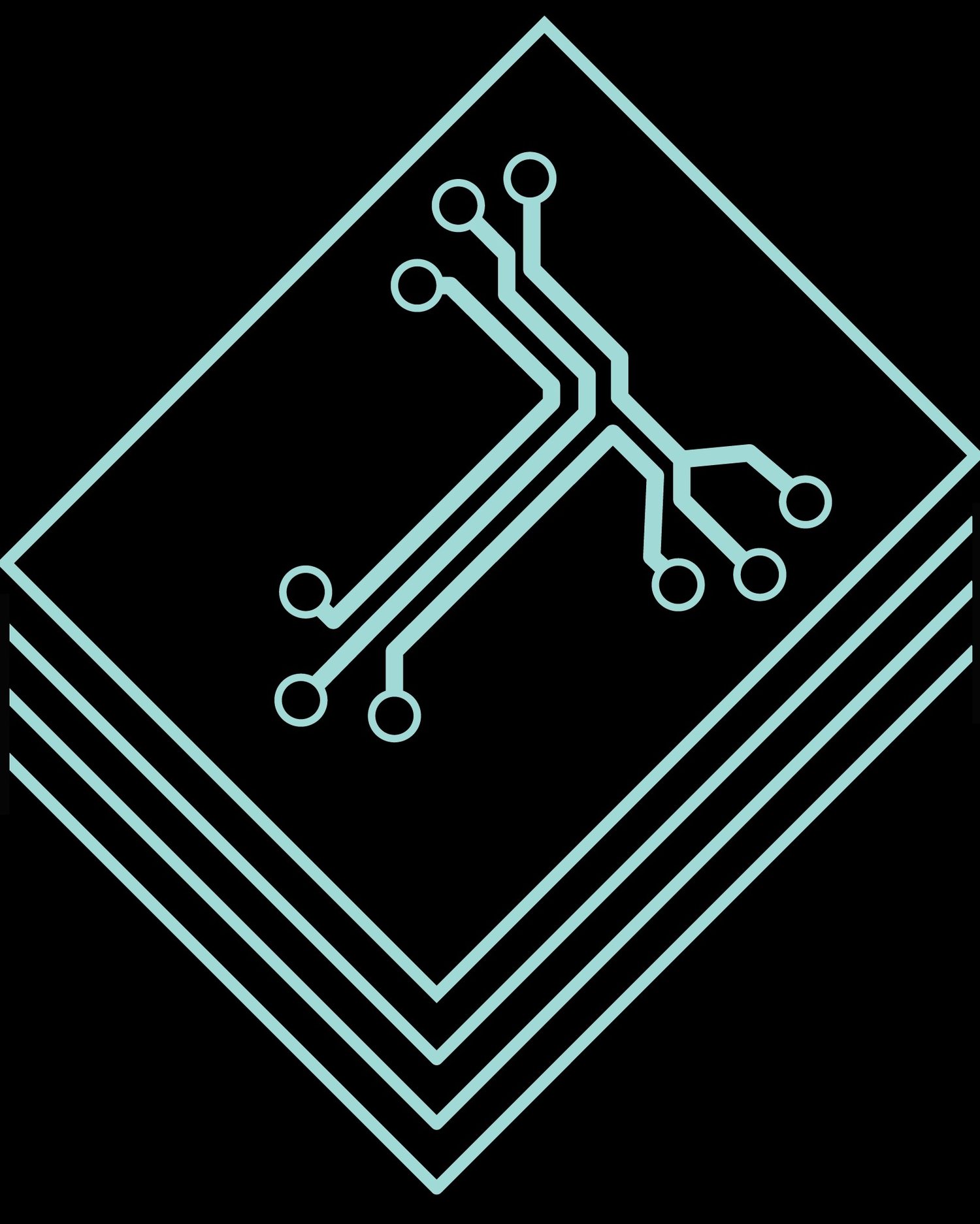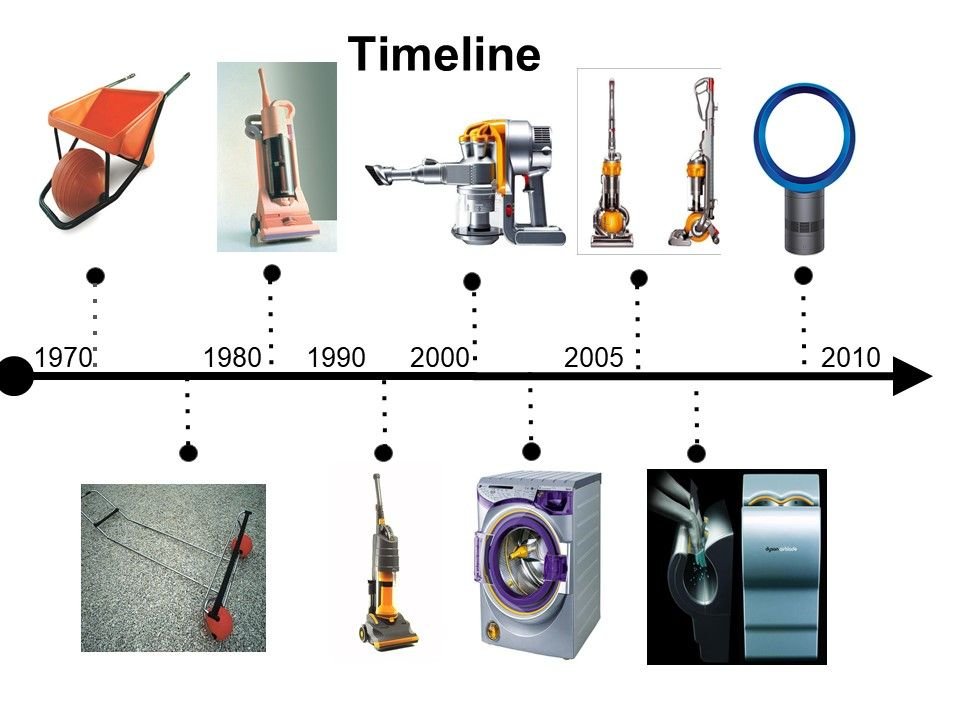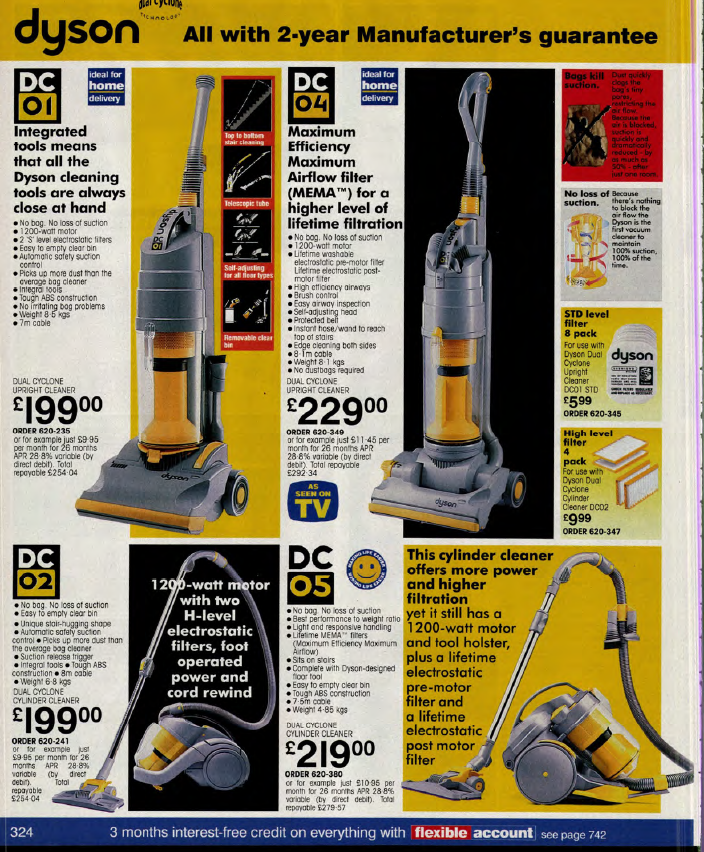This month we dive into an innovation classic by examining the life of of James Dyson and the creation of his world famous vacuum cleaner.
Tech Themes
IP. James Dyson believes that entrepreneurs should always retain their creations. He is a staunch advocate for patent protection and rights. When we look back at the history of Dyson, we can understand why. As a young entrepreneur, Dyson created the ball-barrow, the first wheelbarrow that used a single round ball instead of two wheels on each leg. With improved design, the product performed well; however, the board forced Dyson out of his company over a disagreement on managing the company's financial situation. Even worse, the company owned the ball barrow's patent, so James walked away with nothing but hard-earned experience and frustration. He set out to make his cyclonic vacuum and famously succeeded after 5,127 prototypes. Dyson then set out to partner with distribution channels and found Amway, a Michigan-based electronics company. In 1984, the two companies agreed on a partnership, and Dyson sent over specifications, design prototypes, and core company IP. However, shortly after that, they canceled the agreement and sued Dyson for fraud. Even worse, Amway launched an exact copy of Dyson's DC01 and was trying to compete against Dyson in the US. Dyson shot back and sued Amway. Over the next seven years, Dyson would struggle through the US court system, ultimately winning his legal case against Amway. "When you've developed a new technology, or created a radically different product, have beaten the skeptics, established awareness, and battled to create a market for it, to discover a similar product from the company that canceled the licensing agreement is sickening as if you've been punched in the solar plexus. You feel outraged by the personal theft and helpless." Dyson eventually settled with Amway in 1991, recouping all of his legal costs and gaining control of his IP.
Testing. Dyson loves testing new products. Every test (and every failure) tells you about your product and how it can be improved. He would often spend hours in his garage making minor adjustments to the cyclonic vacuum, hoping the next time would yield positive results. Over time, Dyson has adapted its testing procedures. While most companies employ some basic tests for defects, Dyson wants its products to fail the tests. Head of Testing Marco Li explains: "Everything we test will fail, in one respect, because the way we test our products we want to make sure it fails. That's the only way we can be sure we know what the limits of our technology are and make sure that what we say on the box isn't the best, but the worst-case scenario." Paradoxically, Dyson finds joy in failing: "It's a never-ending process that is enormously rewarding, and endlessly frustrating. There are countless times an inventor can give up on an idea. By the time I made my 15th prototype, my third child was born. By 2,627, my wife and I were really counting our pennies. By 3,727, my wife was giving art lessons for some extra cash. These were tough times, but each failure brought me closer to solving the problem. It wasn't the final prototype that made the struggle worth it. The process bore the fruit. I just kept at it."
Failure and Entrepreneurship. As detailed above, Dyson's first company ended with heartbreak. He describes it: "I was penniless again with no job and no income. I had three adorable children, a large mortgage to pay, and nothing to show for the past five years of toil. I had also lost my inventions. This was a very low moment and deeply worrying for Deirdre and me. It was deeply upsetting, too. My confidence took a big blow, and it would take some years to regain it." Part of being an entrepreneur is holding steadfast to a goal during times like these. Interestingly, an overview of psychological research on entrepreneurship helps us understand why failure and entrepreneurship are so closely linked. It all comes down to reflection. Only upon concrete failures do entrepreneurs enter a state of deep reflection on experiences that created the failure. After some time, the entrepreneur can become more enthusiastic and open with a new perspective on a problem or issue. The secret is getting to failure quite frequently or "Fail, Fast, Forward."
Business Themes
Never Listen to Consultants or Projections. Often venture capitalists pressure entrepreneurs into following attractive markets or trends. Dyson hates market research. He correctly points out that those doing market research are often wrong, and it makes no sense to trust someone who isn't in the industry building products and talking to customers constantly. As he puts it: "I was also putting into practice ideas I'd learned directly from Jeremy Fry and indirectly from Alec Issigonis: Don't copy the opposition. Don't worry about market research. Both Jeremy and Alec Issigonis might just as well have said "Follow your own star." And this is indeed what successful entrepreneurs do." You have to think differently than the market and competition to really arrive at a unique and differentiated product.
Accidental Success. One unobvious benefit of innovation, testing, trials, and not listening to consultants is "accidental" success. I think of unexpected success as the byproduct of curiosity and hard work. Every every hour you put into a tenuous venture adds a marble to the jar of unintended success. It's only after many hours that the marbles of success spill out. The Dyson Airblade is a clear example of the benefits of unintended innovation. The Dyson team was working on a small vacuum cleaner and had controversially decided to bring motor manufacturing in-house. Similar to Apple, Dyson likes to handle all of its manufacturing in-house, also known as a vertically integrated approach. After years of making motors internally with mixed success, his engineers noticed that one of their motors emitted air in a concentrated line. Although Dyson did not intend to make a hand dryer, it seemed like the perfect application for this new technology. It also was another market dominated by a few players (Excel Dryer, World Dryer) who last innovated a few decades ago. Dyson Airblades are now available all over the world.
James Musk and Elon Dyson. The similarities between James Dyson and Elon Musk are striking. Dyson's Dad died from cancer at an early age, which he acknowledges may have propelled his intensity and desire for control as he got older. Elon Musk had a complicated relationship with his Dad and suffered abuse for many years. Dyson was forced out of his ball-barrow company after the board ousted him as CEO. This company was his first venture, and the experience pushed him to assume complete ownership of Dyson after buying out Jeremy Fry in the 1990s. Elon was betrayed by the board of Zip2, his first company, after he took over following a dispute with former CEO Richard Sorkin. Musk was again fired from Paypal after disagreements with Peter Thiel and Max Levchin. Both founders entered markets that had lacked innovation for years, the vacuum industry and the car industry, with premium-priced products that work exceptionally well. Furthermore, these companies (Dyson, Tesla, and SpaceX) employ a unique design that is unlike other products in their respective markets and prioritize environmental benefits with their design. Although from different times and in different fields, I was surprised by how similar Elon and James are; maybe that's just a crazy person thing.


